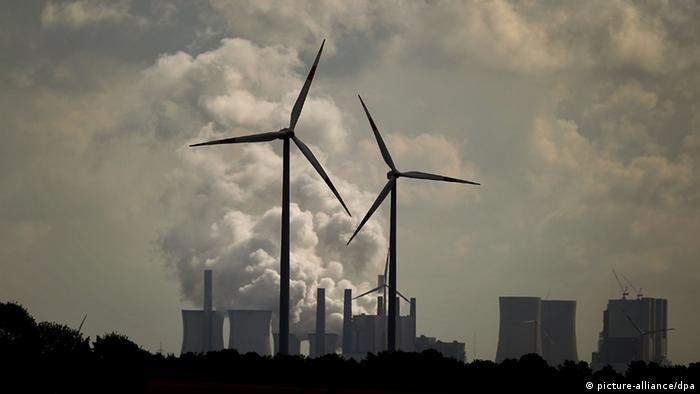The EU’s energy and environment ministers
will today (3 March) begin two days of talks under the shadow of divisions on
greenhouse gas cuts, renewable energy targets and efficiency objectives.
While Germany says it will push
for a binding energy savings goal and stronger renewable targets, Poland wants
a commitment to an emission cut made optional and final decisions postponed
until next year.
The Council discussions on energy
plans for 2030 had been intended to pave the way to an agreement at an EU
leaders’ summit on 20-21 March.
Draft guidelines for that meeting
seen by EurActiv, call for a roadmap leading to “an early agreement on an
ambitious EU position on emissions reductions up to 2030.”
This was framed in the context of
a UN climate summit in September 2014, and the global climate change conference
of parties (COP) due to take place in Paris in December 2015.
But Poland is blocking a
consensus on a planned 40% cut in CO2 emissions, and says that a May 2013
agreement impels a final decision on objectives to be postponed until 2015.
Diplomatic sources have even floated a notion that the EU’s
planned 40% cut in CO2 emissions could be made binding at the EU level alone,
leaving member states free to pursue divergent energy policies. This is
unlikely to gather a groundswell of support.
The UK, for example, supports an
offer of a 50% reduction in Europe’s CO2 emissions being made at the Paris COP,
albeit with the extra 10% cut being met with carbon offsets.
London also wants a decision on
energy goals taken as quickly as possible, ideally before a June summit of EU leaders,
and would prefer to see the EU’s Fuel Quality Directive which regulates
transport energies ranging from biofuels to tar sands, amended rather than
scrapped.
But it will be less sympathetic
to proposals from Germany, which wants a planned 27% goal for renewable
energies in the EU’s energy mix toted up to an “optimal” 30%, and made binding
on member states.
Efficiency targets
More dramatically, Berlin will
push for a binding energy efficiency target, in a challenge to the established
orthodoxy in Brussels that such measures should wait until after a review of
lagging progress towards the non-binding goal set for 2020.
“We feel that the best way to
save energy is not to use it at all,” a diplomat told EurActiv. “There is also
a strong field of green building industry that we need to support. That’s why
we need an ambitious binding efficiency target to send the right signals to
market and industry.”
This will be resolutely opposed
by countries such as the UK, which argues that existing structural EU funds
such as Horizon 2020 are sufficient to incentivise continent-wide energy
savings.
Eastern European countries too
may balk at the suggestion, seeing it as a cost to industry, rather than an
opportunity. The gaze of one aspirant regional leader, Poland, remains squarely
fixed on a horse trade over ‘burden-sharing’, or the degree of energy
transition they must make relative to other EU states.
This will fit into debate on a
looser governance structure for implementing energy and climate policy, with
Warsaw arguing that its coal-dependent circumstances make clean energy a costly
proposition.
Energy costs
Energy costs will also be
discussed by the ministers, with a focus on the disconnect between wholesale
and retail prices, as well as the disproportionate effect of taxes and levies.
“Prices, and especially costs,
have continued to rise overall for both households and industry despite falling
or stable consumption,” a draft Council communication seen by EurActiv says.
“This rise in prices is driven mainly by increases in network costs and
taxes/levies and wide differences between member states’ policies on these
costs and levies.”
A convergence and fall in
wholesale electricity prices “has not been transposed into a reduction of the
retail prices,” the paper notes.
It proposes debate on subjects
including:
·
Completion
of the internal market by 2014
·
Further
development of energy infrastructure
·
Cost-effective
application of taxes and levies
·
Protecting
vulnerable consumers though social policy measures
·
Diversifying
energy supplies and routes
·
Ensuring
consumer choice of the most advantageous energy supplier
Industrial competitiveness and a
recent EU communication on industrial renaissance may well loom large, as
Europe's energy intensive industries take an increasingly vocal line in the climate
debate.
Industrial renaissance
Speaking in Brussels last week,
Dr Brigitta Huckestein, a senior manager for the German chemicals giant BASF
said that any EU 2030 climate and energy targets should “depend on what the
public is willing to pay for climate action.”
“I do not believe that people are
aware of this – that it will cost their money if politicians are going for such
a high goal,” she told journalists.
In the end, a timeline to
agreement may be the most that ministers can agree this week, leaving Europe’s
clean energy industries kicking their heels.
A letter from the European
Renewable Energy Council (EREC) to the EU’s heads of state, seen by EurActiv,
notes that the EU’s own impact assessment accompanying the 2030 proposal
indicated that a 30% renewables target for 2030 would create 568,000 more jobs
and save €260 billion in fossil fuel imports.
“Agreeing on mutually reinforcing
targets for GHG emissions reductions, energy efficiency and renewable will
enable the development of a European climate-friendly energy mix through
dedicated and reliable policies,” says the letter by Rainer Hinrichs-Rahlwes,
EREC’s p
For more
related topic, visit the following:

No comments:
Post a Comment